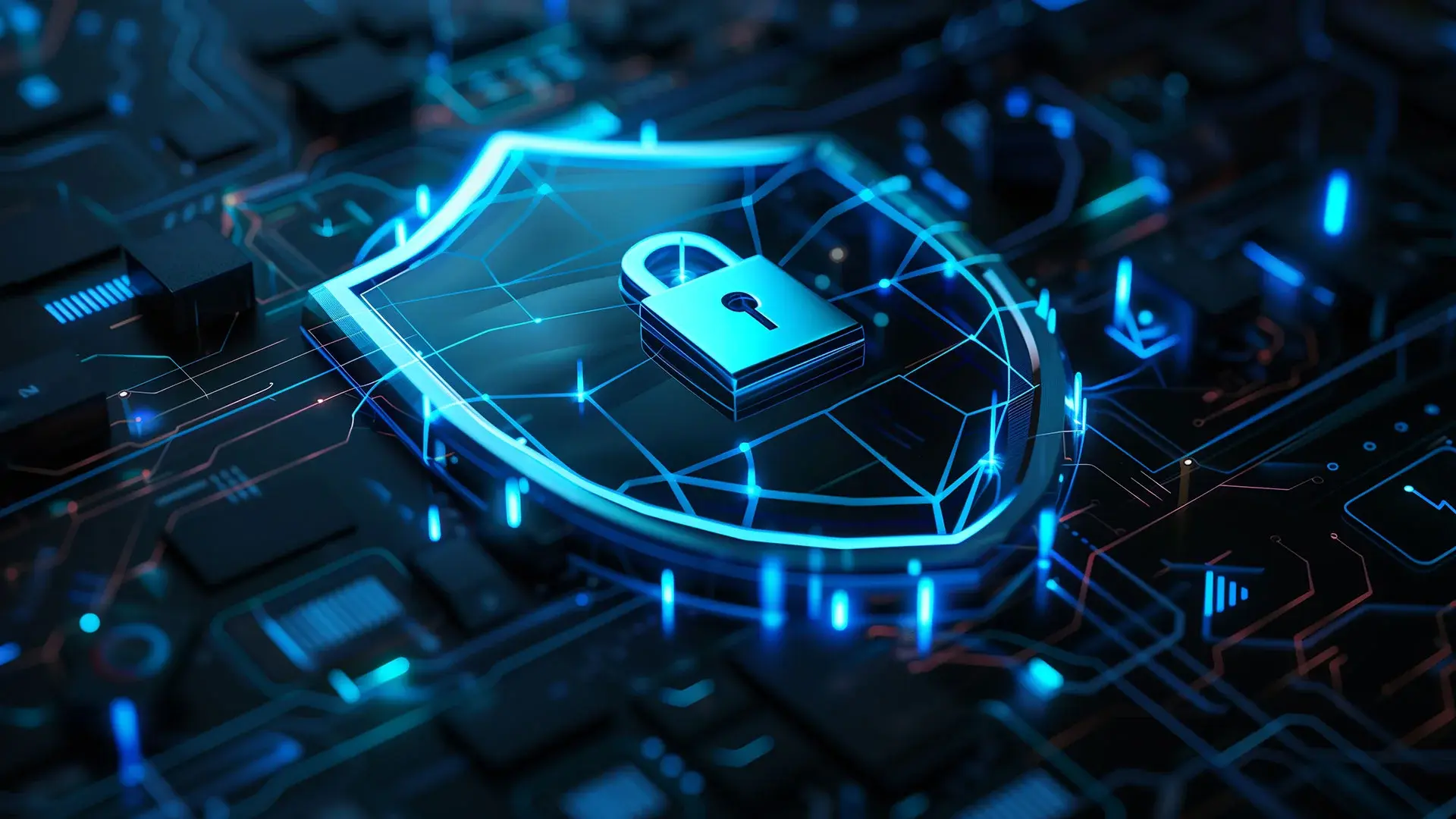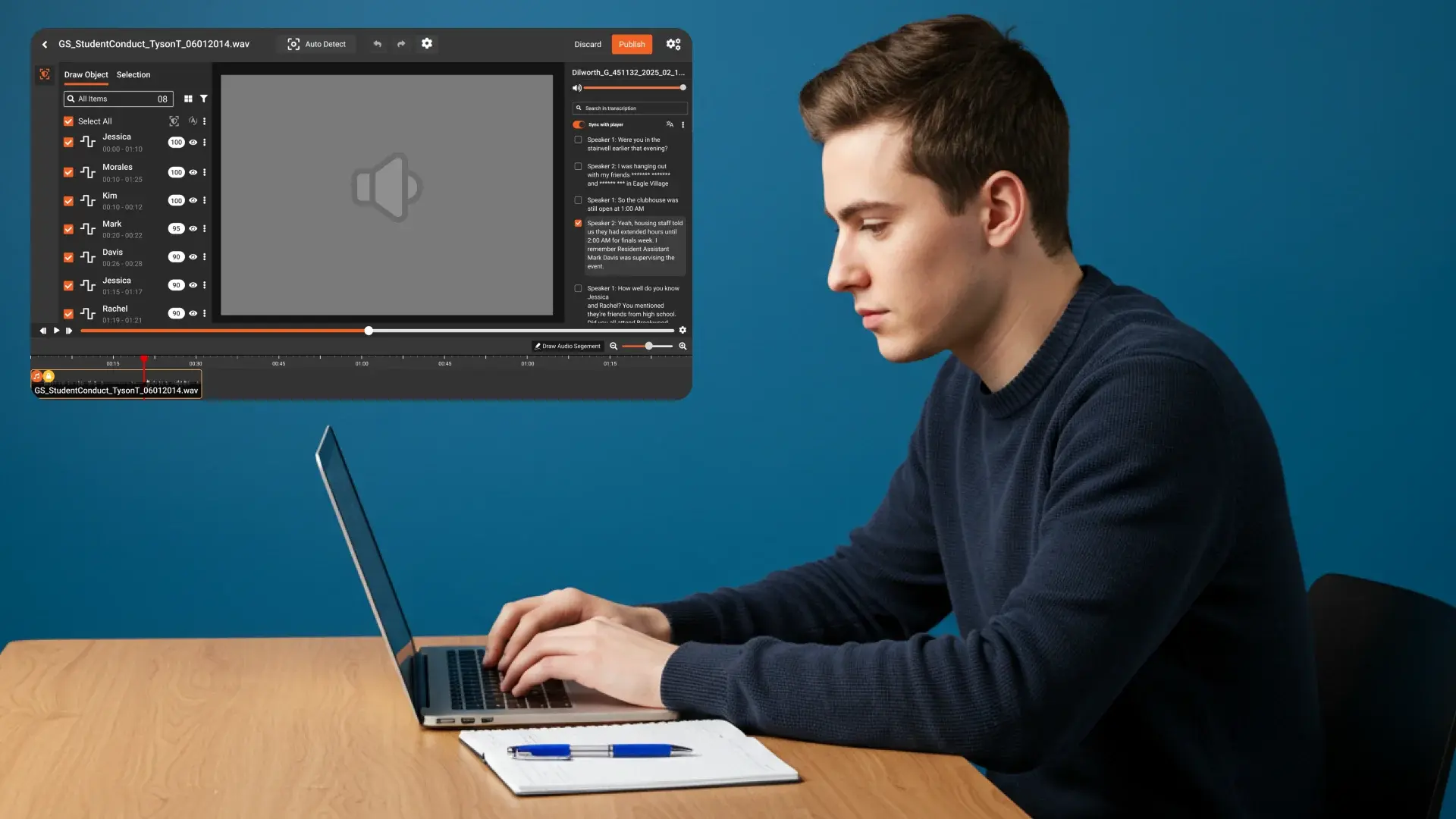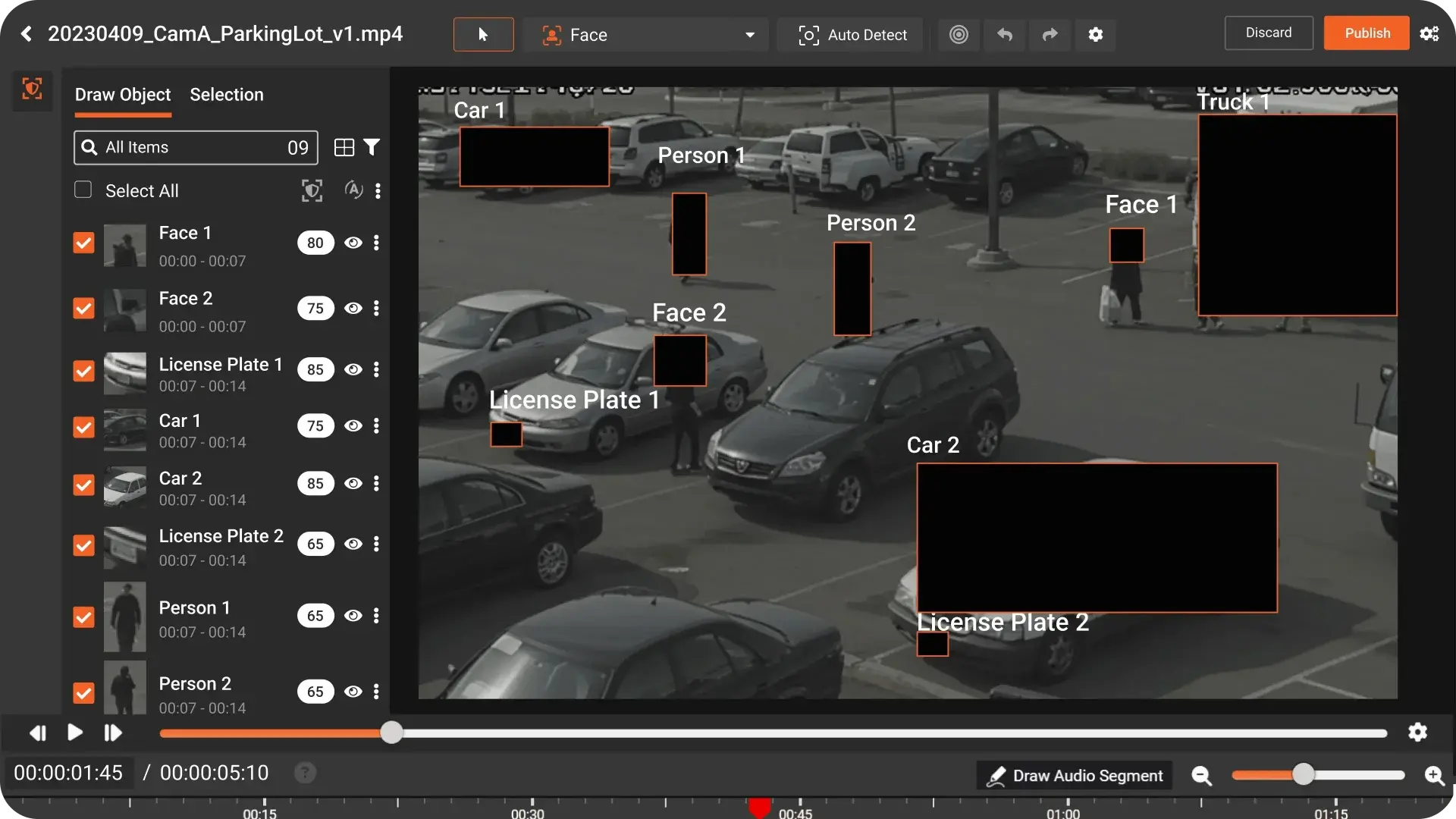Avoiding PII Violation Penalties with Redaction Software
by VIDIZMO Team, Last updated: June 24, 2025, ref:

A lot lies on the line when handling user data because much of it, including Personally Identifiable Information – PII – cannot be made public. However, if it does, depending on the intensity, you can be looking at anything from a slap on the wrist to hefty fines.
Not to mention the irreparable damage to your Goodwill as you failed to uphold the privacy of users who trusted you with sensitive information. Unfortunately, safeguarding data doesn't come easy, as breaches due to exposures, leaks, and other vulnerabilities are common.
To put things in perspective — there are 2,200 cyber-attacks daily, accumulating to around 803,000 people yearly. Moreover, non-compliance penalties can range from $5,000 to a staggering $1 million per day of violation.
So, what does PII mean? Simply put, PII includes all data – Social Security number, full name, face, address, fingerprints, credit card number, passport number, car number plate, D.O.B., handwriting, etc. – that can be used to narrow down to one's identity.
And nobody is above the law; for instance, Google was fined US$ 57 million, as they couldn't abide by GDPR, so they were tagged with a PII violation.
In this blog, we dive into the world of compliances, why they should be taken seriously, and how to avoid landing in sticky situations.
However, if you are stressed for time, click below for a free trial of our all-in-one solution.
Why should you secure PII?
Securing PII from prying eyes is necessary because if it lands in the wrong hands, the identified individuals can be caused financial harm.
Organizations dealing with Personally Identifiable Information (PII) must understand the legal landscape. So, let's dive into the world of data protection laws, including GDPR, HIPAA, and others.
What are different data protection regulations?
Different data protection regulations include GDPR, HIPAA, and several others – adhering to these regional or global standards is necessary.
Think of GDPR as the guardian of personal data in the European Union and the U.K. It lays down strict rules on how organizations should manage personal information. If ignored, you may be prosecuted and liable to pay a considerable fine.
HIPAA is the U.S. heavyweight in healthcare data protection. It focuses on keeping health-related info confidential and secure. Violating HIPAA can lead to severe penalties, including substantial fines.
Besides that, the California Consumer Privacy Act (CCPA) and Freedom of Information Act (FOIA) are in the U.S.
These laws aim to protect individuals' data privacy rights and set specific requirements for businesses operating within those regions.
What are the rules for collecting and handling PII?
S.M.B.s and Enterprises must have specific protocols in place when handling PII – these include:
- Getting explicit consent before collecting PII
- Amping up security to keep PII safe from unauthorized access or breaches
- Allowing individuals to access, correct, or delete their Personally Identifiable Information
- Appointing a Data Protection Officer (D.P.O.) to ensure compliance
- Notifying authorities and affected parties if there's a data breach
What are the benefits of maintaining compliance?
Complying with these regulations isn't just about obeying the law; it's also about trust. It builds confidence among customers and stakeholders that their data is being managed responsibly.
Ignoring the rules can damage reputation, financial penalties, and lawsuits, which could harm your organization's long-term success.
All in all, these regulations ensure the safety of sensitive information and foster trust between organizations and the people they serve.
What is the penalty for exposing PII?
The penalty for exposing PII features fines up to US$ 5,000, plus you can be incarcerated so it can cost an arm and a leg; hence, preemptive measures are the need of the hour.
That said, let us dive into the nitty-gritties:
Fines and Legal Penalties
Financial penalties for non-compliance can be frightening for organizations, depending on the breach's scale. For instance:
HIPAA Violations
Non-abidance penalties with the Health Insurance Portability and Accountability Act (HIPAA) can range from $100 to $50,000, depending on the severity.
Anthem, Inc. paid a staggering $115 million in a lawsuit after a data breach compromised the protected health information (PHI) of nearly 70 million people (about twice the population of California). Besides that, they also had to pay $16 million for HIPAA violations in this regard.
GDPR Violations
According to the General Data Protection Regulation (GDPR), non-compliance fines can be detrimental, reaching up to an outrageous €20 million (US$ 21,212,500.00) or 4% of an organization's annual revenue.
To give some perspective on the situation, in May 2023, the Irish Data Protection Commission fined Meta (Facebook) €1.2 billion (US$ 1,272,618,000) for failing to comply with GDPR.
CCPA Violations
The California Consumer Privacy Act (CCPA) can fine organizations ranging from $2500 for unintentional breaches to $7500 for intentional violations.
This may seem like a minuscule penalty compared to the Goliaths we've mentioned, but bear in mind that one consumer means one penalty. So, accordingly, this can pile up to be a considerable sanction.
For instance, a PII breach of 100,000 individuals (about the seating capacity of the Los Angeles Memorial Coliseum) means a collective fine of $75 million.
Lawsuits and Damages
Individuals affected by PII breaches have the right to sue organizations for damages.
These lawsuits can result in financial settlements to compensate for the harm caused by the breach, such as identity theft, financial loss, or emotional distress.
Reputation Damage
PII breaches can severely damage an organization's reputation as they fail to protect their audience's privacy.
This leads to the loss of customers and partners as their trust is broken, and this lost Goodwill may be beyond repairable.
Operational Disruption
PII breaches can disrupt business operations significantly. Organizations may need to halt operations temporarily to address the breach, investigate the incident, and implement corrective measures.
VIDIZMO's Redaction Software to the Rescue
In a time where even a slightly wrong step can result in severe consequences, the VIDIZMO redactor is here for flawless, error-free redactions in audio, videos, images, and documents.
- Automatic detection: VIDIZMO Redactor does all the hard work for you — define parameters and set it in motion!
- Compliance: VIDIZMO Redactor helps organizations adhere to necessary compliances that require safeguarding of PII, such as GDPR, HIPAA, CCPA, and FOIA.
- Document Redaction: VIDIZMO can automatically detect PII in documents and images. Additionally, VIDIZMO can even notice hand-written documents using O.C.R. technology.
- Spoken PII Detection: VIDIZMO allows bulk uploads of digital files, which the system will automatically transcribe in the case of a video or audio. The system will automatically detect Personally Identifiable Information in transcripts, and the user can effortlessly redact specific segments of audio containing sensitive information.
A Surefire way to ensure compliance and avoid violations
In conclusion, protecting Personally Identifiable Information (PII) is not just a matter of good practice; it's a legal obligation with consequences for non-compliance.
Remember, PII encompasses sensitive data that can be used to identify individuals, and mishandling it can lead to severe penalties.
Do you have doubts or concerns? Please reach out as and when you please; our experts are waiting by the phone to help you.
Want to give it a shot?
Jump to
You May Also Like
These Related Stories

PCI DSS Cardholder Data Protection With Automated Redaction

Ready to Deploy On-Premises Redaction Software for PHI Face Redaction?






No Comments Yet
Let us know what you think